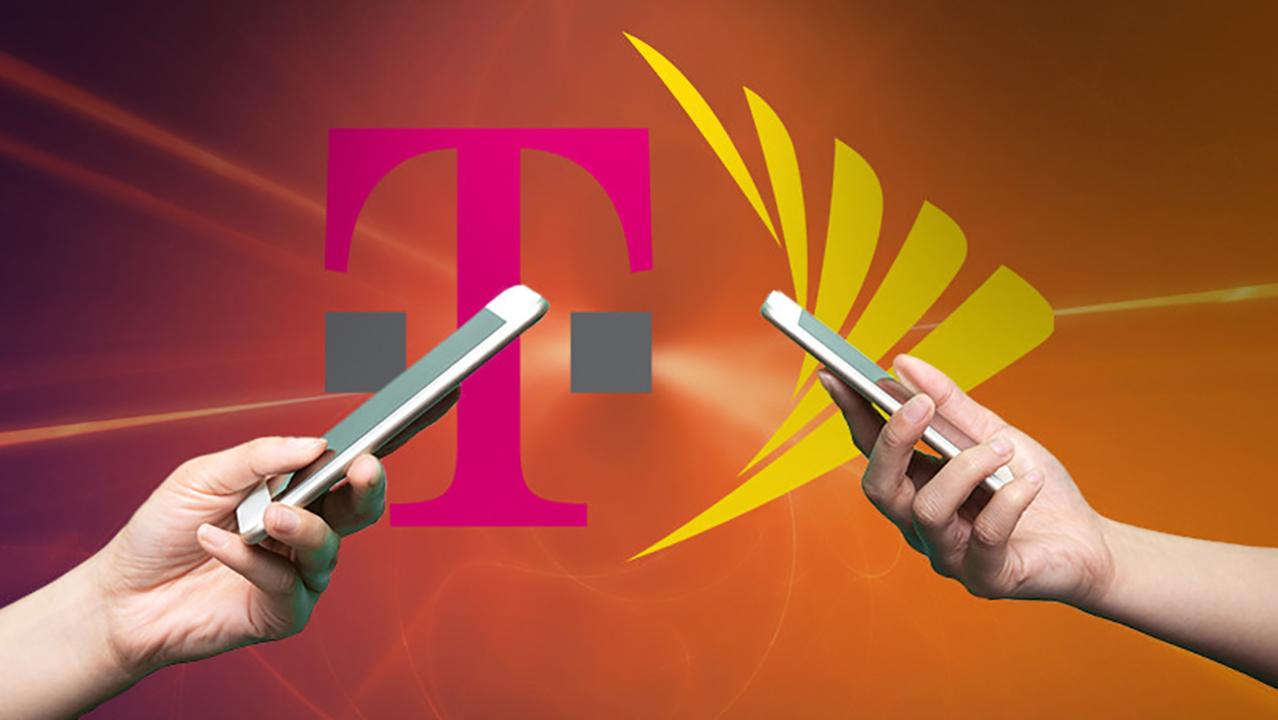T-Mobile-Sprint $26B deal has Democratic lawmakers crying foul over potential approval
Several Democratic lawmakers, including three presidential candidates, want to know if President Trump or his senior aides have intervened in the Department of Justice’s ongoing review of the $26 billion T-Mobile-Sprint merger after FOX Business reported White House officials support the controversial deal as it faces stiff resistance from staffers at the department’s Antitrust Division.
| Ticker | Security | Last | Change | Change % |
|---|---|---|---|---|
| TMUS | T-MOBILE US INC. | 197.66 | +0.27 | +0.14% |
| S | SENTINELONE INC | 13.14 | -0.08 | -0.61% |
In the letter to Makan Delrahim, the Assistant Attorney General of DOJ’s Antitrust Division, six senators asked if any White House employee or adviser had contact with or even expressed an opinion on T-Mobile’s proposed acquisition of Sprint, emphasizing the importance of keeping the department’s review of the deal’s antitrust implications “impartial” from political interference. Many DOJ staffers are opposing the deal on the grounds that it would reduce the number of wireless carriers and they believe will lead to price increases for consumers.
The signatories include three Democratic Presidential candidates: Massachusetts Senator Elizabeth Warren, New Jersey Senator Cory Booker, and Minnesota Senator Amy Klobuchar. They were joined by New Mexico Senator Tom Udall, Connecticut Senator Richard Blumenthal, and Massachusetts Senator Edward Markey.
“Since the beginning of this Administration, we have repeatedly raised concerns about reported White House attempts to interfere with the Department of Justice’s antitrust enforcement decision making,” the letter, dated May 31, stated. “Recent reports indicate that senior White House officials may be attempting to insert their views into yet another Department proceeding – the Antitrust Division’s investigation into the proposed merger of T-Mobile US, Inc. (T-Mobile) and Sprint Corporation (Sprint). In light of the potential implications of this transaction for American consumers, we write to reiterate that the Department’s decisions should be based on an impartial analysis of the facts and the law, and must be entirely free of improper political influence.”
The letter specifically cited an FBN report that “Trump administration economic officials are making it clear they support T-Mobile’s proposed $26 billion purchase of Sprint, a move that could place the Justice Department’s Antitrust Division on a collision course with senior White House advisers if the agency chooses to oppose the merger...”
2019.05.31_Letter to AAG De... by on Scribd
As first reported by FOX Business, senior White House economic and national security officials have largely sided with the arguments presented by T-Mobile/Sprint executives that the antitrust concerns of the merger are overblown and that a stronger combined company will provide more competition in the wireless market particularly in the area of superfast 5G technology. Federal Communications Commission chief Ajit Pai recently signaled his agency’s approval of the transaction after the company’s agreed to minor concessions.
The ultimate decision will be made by Delrahim, a Trump appointee, who could reject the staff recommendation and approve the merger on his own. For now, Delrahim is said to be undecided as company officials continue to meet with the Antitrust Division to push the deal through. The DOJ can oppose the deal by announcing a lawsuit to block the merger in federal court. A decision could come as early as this week.
"As the Department of Justice stated in the past, all of the law enforcement decisions by the Antitrust Division are based on the facts and the law, and free from any improper political influence," a DOJ spokesman told FOX Business. "The T-Mobile/Sprint transaction is reviewed in this manner, just like any other transaction reviewed by the Justice Department.”
Even as the DOJ staff has expressed misgivings about the deal, the companies have argued a combined T-Mobile and Sprint would be a stronger competitor to major wireless carriers AT&T and Verizon and would continue to compete with them on pricing. They’ve argued that the combined company will be able to better compete with foreign outfits, particularly from China, in 5G cellular wireless technology. Meanwhile, Sprint is such a weak carrier that by itself it cannot compete with the bigger wireless players on pricing and its survival could be in jeopardy if the deal fails.
The Trump Administration has made U.S. advancement of 5G technology a key economic and national-security policy goal because it is expected to create millions of new jobs, add to GDP and protect the US from foreign spying.
But Delrahim faces a difficult choice given his department’s opposition to the AT&T-Time Warner merger, which was generally regarded as less concerning from an anti-competitive standpoint. His staffers are arguing that if the deal goes through, the wireless business will be dominated by three large players and the antitrust implications are significant given the dominance of wireless technology in the lives of most Americans.
As FOX Business reported, company officials have been offering additional concessions to those they made to gain FCC approval, including divesting the prepaid business Boost, building out 5G in rural areas, and committing to not raise prices for three years. The talks are said to be fluid, but the additional concessions that have been discussed with the DOJ involve selling spectrum and more prepaid businesses, according to people with knowledge of the matter.
Shares of Sprint, the would-be acquired company should the deal go through, have declined from $7.68 per share to $6.64 per share since the FCC gave the deal a green-light on May 20, reflecting sentiment on Wall Street traders that DOJ will not approve the merger.
*This story, originally published on 6/3/19, has been updated to reflect the DOJ statement.




















